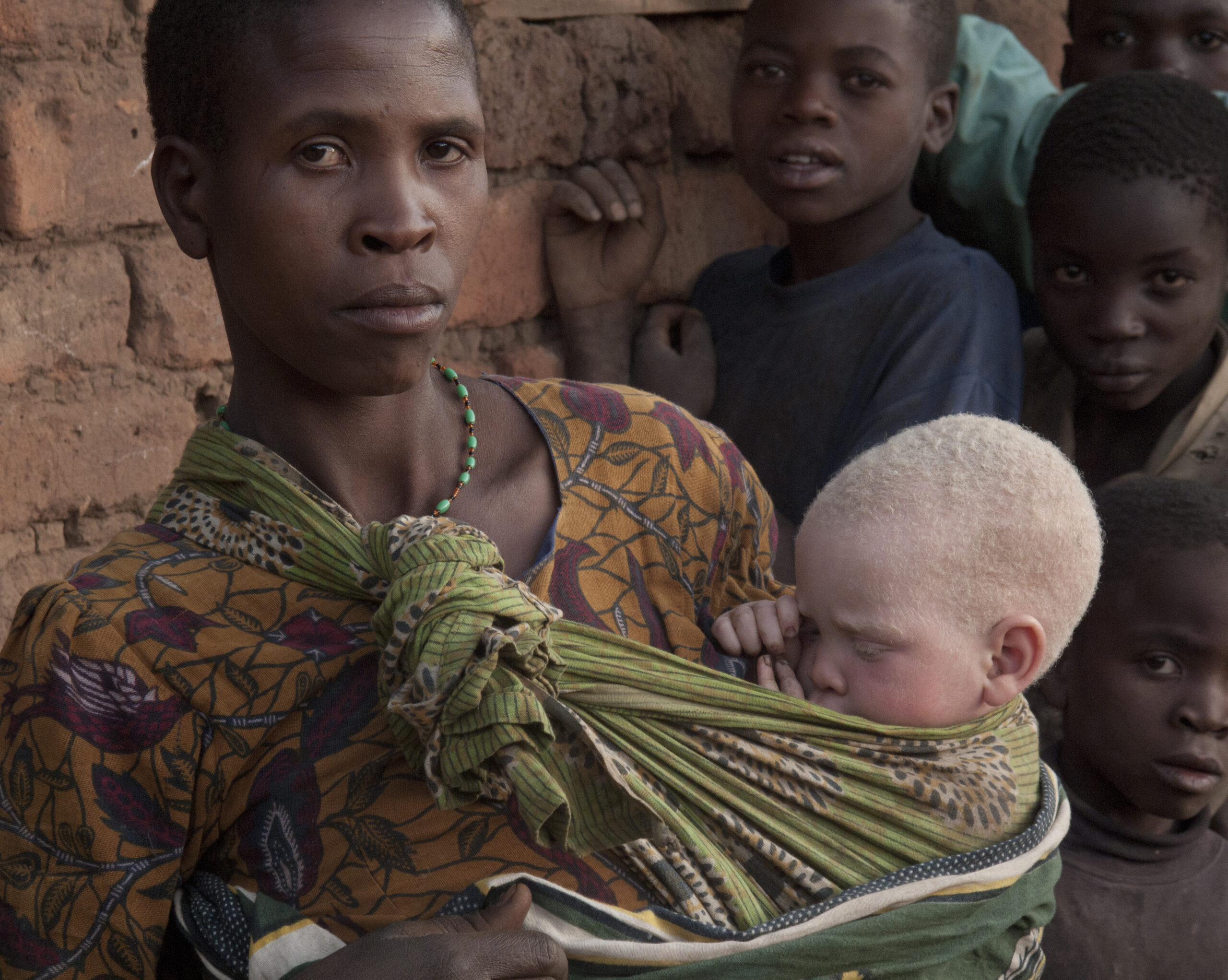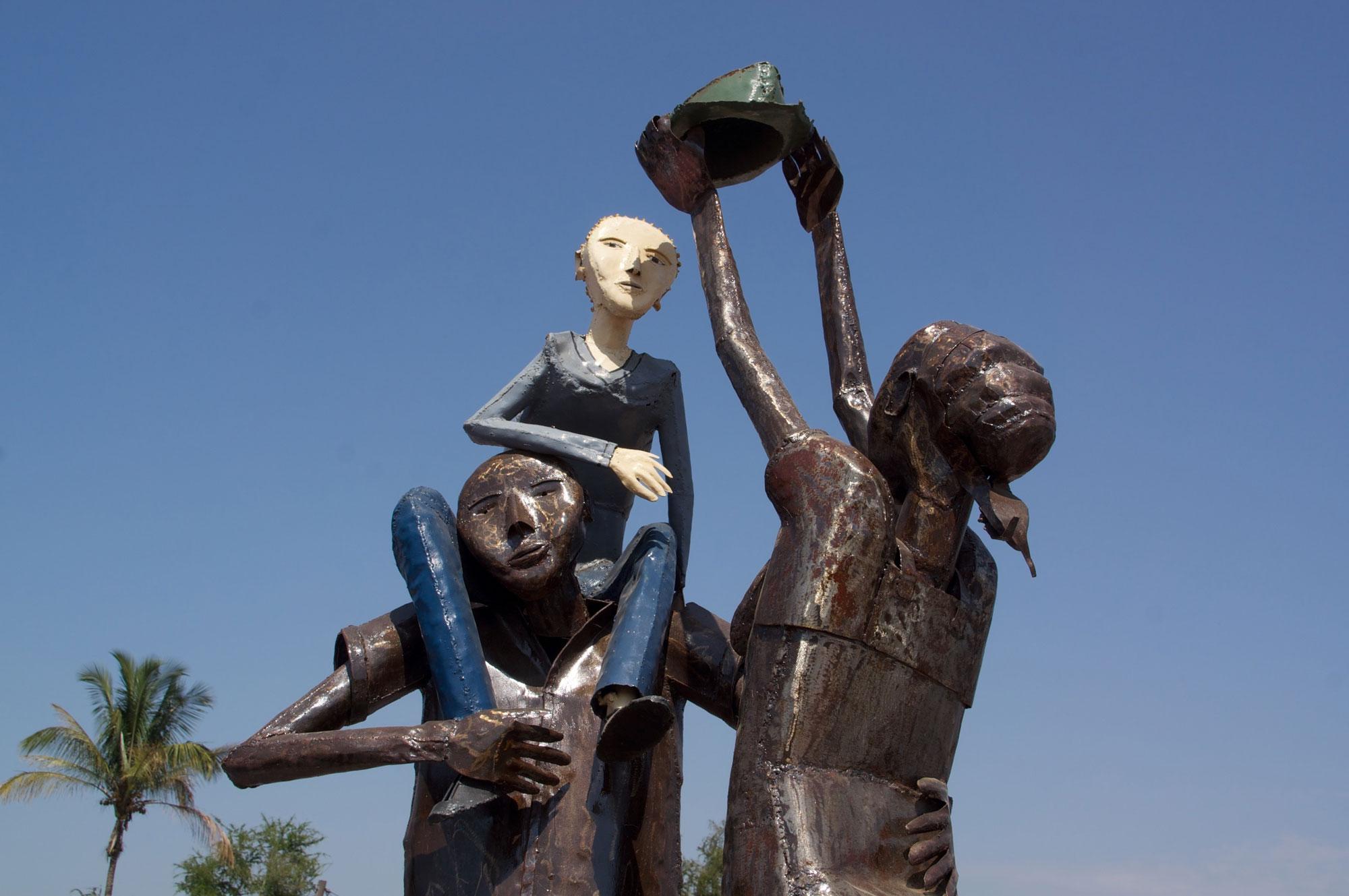Albinism
Albinism is a hereditary condition that results in a lack of pigmentation in skin, hair, and eyes. The term “Person with albinism” is preferred over “albino” as it puts the person ahead of their condition.

What is Albinism?
an inherited genetic condition
Albinism is an inherited condition characterized by a lack of the pigment melanin, resulting in pale skin, light hair, pale eyes and impaired vision. Both parents must carry the gene in order to pass it on, but they may not have albinism themselves. Although in Europe and North America approximately 1 in 20,000 people has albinism, the rates are higher in Africa, with about 1 in 1,400 occurrences in Tanzania.
Watch this video to learn about the issues that affect people with albinism in Africa.
Watch the videoAlbinism Issues
The challenges a person with albinism experiences is greatly impacted by where they live. In the western world, the main challenges are health related and possibly bullying, while in parts of Africa, people with albinism face extreme discrimination that can lead to abandonment, attacks, and even killings.
A person with albinism in sub-Saharan Africa faces discrimination, isolation and even abandonment.
The every-day life of a person with albinism in Africa is too often characterized by loneliness, poverty and rejection. Children with albinism are stigmatized by their peers. They are often stared at and made fun of.
Many husbands desert their wives when they give birth to a child with albinism because of the stigma that comes with this genetic condition. The parent’s superstitions may lead them to completely abandon or even kill their newborns. Well-meaning but fearful parents may lock away their children with albinism, isolating them from making friends, going to school and living a normal childhood. For those who do go to school, low vision leads to high dropout rates. Adults with albinism are shunned and passed over for jobs. Poverty is rampant.
Dangerous myths and stigma surround people with albinism.
In Tanzania, people with albinism are called zeru zeru, meaning “ghosts.” It is assumed by some that these “ghosts” bleed a different colour, or even that they are immortal. These dangerous beliefs incite the brutal attacks against people with albinism. A baby born with albinism may be considered a curse and be killed.
Witchdoctors take advantage of the ignorance and superstitions, fueling beliefs that people with albinism possess magical qualities. They spread the lie that the body parts of people with albinism used in charms and potions bring wealth, power, and good luck.
Albinism is a rare, non-contagious, genetically inherited condition occurring in both genders regardless of ethnicity, in all countries of the world.
Albinism affects people from all races: Black, White, Asian – every race has their own persons with albinism.
People with albinism may be attacked and killed for their body parts.
Since 2006, more than 620 attacks on people with albinism in 31 countries have been recorded.
At more than 200 incidents, Tanzania has the largest recorded number of attacks. There is a black market for body parts, hair and skin used by witchdoctors in potions and charms. The nature of attacks can range from maiming to death, to desecrating a grave.
Election years are particularly unsafe for people with albinism.
There is an increased demand for body parts of people with albinism in the lead-up to elections when people running for office – people who are wealthy and educated – may turn to witch doctors for good luck potions. The people who harvest the parts are usually impoverished and willing to do something dreadful simply to make a bit of money. These criminals can gain up to $75,000 U.S. for the sale of a whole body according to the U.N. Few attackers and witchdoctors have been brought to trial, let alone convicted. Not one buyer in this macabre trade has ever been prosecuted.
Health problems make it difficult to lead a normal life if you have albinism.
Albinism affects the structure and pigmentation of the eye, causing visual impairment ranging from mild to severe. Many people with albinism are legally blind. All have extreme sensitivity to light.
People with albinism are much more susceptible to skin cancer because the lack of melanin in their skin leaves them unprotected from the sun. Most children with albinism as young as 10 in sub-Saharan Africa have some form of early-stage skin cancer and only 2% live beyond age 40. Many are not aware of the danger from the sun and how to protect themselves. They may also not have access to sunscreen.
Where Have Attacks Happened?
Tanzania has the highest recorded number of attacks at over 200. The below map of Africa: The Countries in red are those where violent attacks against persons with albinism have occurred.
Albinism FAQ
Here are some quick answers to commonly asked questions about albinism.
In Europe and North America approximately 1 in 20,000 people has albinism, the rates are higher in Africa, with about 1 in 1,400 occurrences in Tanzania.
Albinism is passed from parents to their children through genetics. Both parents must carry an albinism gene to have a child with albinism. Parents might not have albinism themselves, but may still carry the gene.
No, albinism is an inherited genetic condition from birth. With the help of low-vision aids, assistive technology, sunscreen, and wearing proper clothing, the health challenges associated with albinism can easily be minimized.
People with albinism often have lighter colored skin and hair than the other members of their family or ethnic group. Vision problems are also heavily associated with the condition.
In Remembrance
This monument in Sengerema, Tanzania stands near the epicenter of attacks against people with albinism, to honor those who have been violently assaulted and killed.
The life-sized metal statue, made by Tanzanian artists with disabilities, looks to the future. The statue depicts a pigmented father holding his child with albinism on his shoulders while a pigmented mother puts a wide brimmed hat on the child’s head to protect him from the sun. It portrays an integrated family living a normal life, anticipating the day when people with albinism in Tanzania will live normal lives, free of the deadly discrimination that haunts them today. As a memorial, the names of those who have been attacked are etched around it.
visit our honor roll
